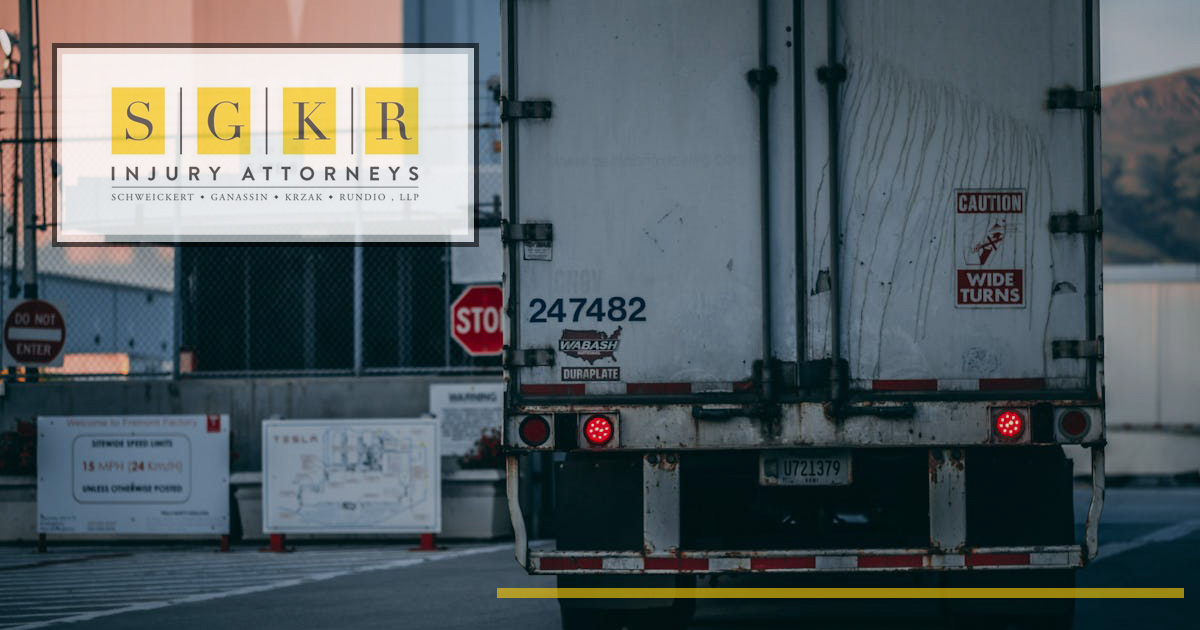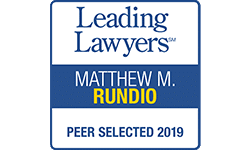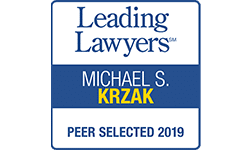What Is a Fair Truck Accident Settlement?

Truck accidents often result in serious injuries, costly medical bills, and significant emotional distress.
When a big rig accident happens because of someone else’s negligence, the injured party or parties have the legal right to seek compensation. Often in the form of a settlement agreement.
However, determining what’s a fair amount for a truck accident settlement isn’t always so simple.
Several factors influence settlement amounts, including medical expenses, lost wages, and the severity of injuries. Accident victims must be able to assess whether a settlement offer is reasonable or if further negotiation is necessary.
That’s where the experienced professionals at Schweickert Ganassin Krzak Rundio, LLP, can help.
Factors That Affect a Truck Accident Settlement
Every truck accident case is unique, and settlements can vary depending on the details surrounding your crash. Some of the most important factors that can influence the amount of a settlement include:
- Severity of Injuries: The extent of injuries plays a major role in determining a fair settlement. Minor injuries may lead to lower compensation, while injuries that are catastrophic, like spinal cord damage or traumatic brain injury, often end in higher settlements.
- Medical Expenses: A fair settlement should cover both your past and future medical costs that are related to the accident. This includes hospital stays, surgeries, physical therapy, and any long-term care you require.
- Lost Wages and Future Earnings: If an accident prevents you from working, either temporarily or permanently, your settlement should make up for this lost income. If your injuries will have an effect on your ability to earn in the future, then additional compensation may be required.
- Pain and Suffering: Any physical pain or emotional distress you’ve suffered will also contribute to the settlement amount. While these damages can be less quantifiable, they’re still an important part of a fair settlement.
- Liability and Negligence: If clear evidence shows that a driver or trucking company was at fault, your settlement could be higher. If you share some responsibility, however, the final amount may be less.
Compensation Categories in Truck Accident Settlements
Truck accident settlements typically include two main types of compensation: economic and non-economic damages.
Economic Damages
Economic damages cover tangible financial losses, such as medical expenses, rehabilitation costs, property damage, and lost income. These damages are easier to calculate since they are based on actual bills and financial records.
Non-Economic Damages
Non-economic damages account for more subjective losses like pain and suffering, emotional trauma, and losses to your ability to enjoy life. These damages can vary depending on the impact of the accident on your daily life and general well-being.
Punitive Damages
Though it’s rare, punitive damages may also be awarded if those at-fault parties are found to have been particularly reckless or malicious. These damages are meant to be a punishment to deter future misconduct.
How Insurance Companies Determine Settlement Offers
Insurance companies assess claims carefully before offering a settlement. Their goal is to minimize payouts, which means a first settlement offer will likely be lower than what you actually deserve.
Adjusters will consider factors such as the severity of your injuries, available evidence, and the level of fault. They’ll also review your medical records, accident reports, and eyewitness statements before making an offer.
You should be cautious when accepting early settlement offers. In many cases, an insurance company will try to convince you to settle quickly before the full extent of injuries and medical needs become clear.
Typically, once a settlement is accepted, you can’t seek more compensation later. Consulting with a qualified attorney before you agree to any settlement can help ensure that the amount offered is fair.
Legal Representation in Negotiating Settlements
Truck accident claims can be complex, especially when dealing with big trucking companies and their insurance providers. Having legal representation in your corner can make a huge difference in securing maximum compensation in a settlement.
Experienced attorneys know how to assess the true value of a claim, gather necessary evidence, and negotiate aggressively on behalf of their clients. Lawyers can also help uncover additional sources of compensation.
In some situations, more than one party may be liable for a truck accident, including the trucking company, cargo loaders, or maintenance providers.
Identifying all responsible parties can increase the total amount of available compensation.
When to Settle and When to Pursue Litigation
Settling a truck accident claim can provide faster compensation without the uncertainty of a trial.
However, not all settlement offers are fair. If negotiations aren’t getting anywhere, or the insurance company won’t agree to an adequate amount, taking your case to court could become necessary.
Litigation can be a lengthy process, but it may result in a higher award if the case is strong.
Going to trial requires presenting conclusive evidence and expert testimony, and making a legal argument before a judge or jury. If the trucking company or insurer refuses to negotiate in good faith, a court case may be the best way to secure fair compensation.
A fair truck accident settlement should fully compensate you and your family for medical expenses, lost income, and pain and suffering. Because insurance companies often aim to settle for as little as possible, you must carefully evaluate any offer before accepting it.
Legal representation from Schweickert Ganassin Krzak Rundio, LLP, can help ensure your settlement reflects the true impact of an accident, providing you with the financial stability and support you’ll need for recovery.
Whether your case requires negotiation or litigation, choosing the right personal injury lawyer and securing the right settlement can make a significant difference in rebuilding life after a truck accident.
We can help.








